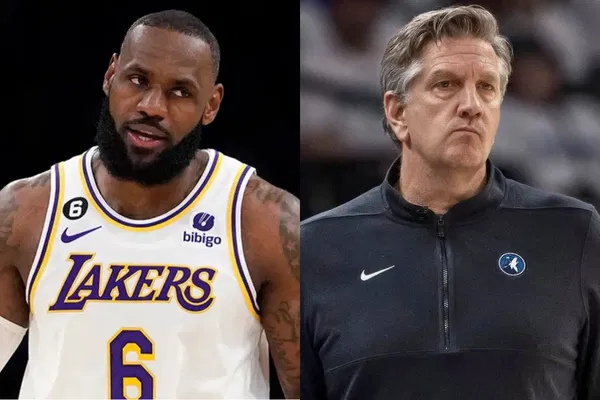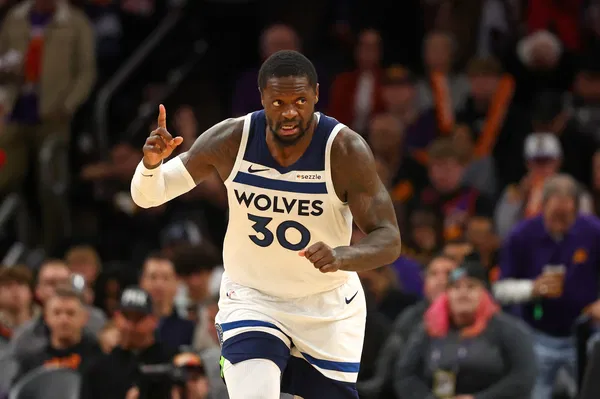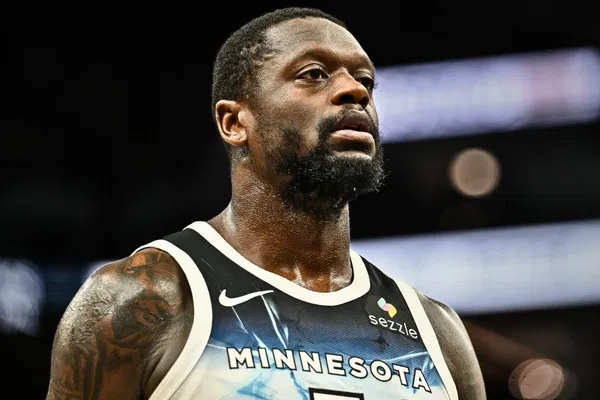
Heading into the playoff matchup between the Los Angeles Lakers and the Minnesota Timberwolves, there was a familiar feeling in the air. Just last season, Luka Doncic and Anthony Edwards faced off in the Western Conference Finals—though Doncic now wears purple and gold after being traded for Kyrie Irving. With LeBron James, Austin Reaves, Rui Hachimura, and other offensive threats beside him, expectations were high for the Lakers. But after a Game 1 loss, doubts have emerged. It raises the question: Are Luka’s Lakers as formidable as his former Mavericks? The answer may lie in both the Lakers’ missteps and the Timberwolves’ development.

Former player and coach Sam Mitchell discussed the series during an appearance on The Stephen A. Smith Show. Mitchell praised the Timberwolves, while Stephen A. countered by reminding viewers that Luka’s Mavericks beat Minnesota the previous year. Mitchell emphasized a key difference this time around: Julius Randle has replaced Karl-Anthony Towns. Unlike Towns, who mainly focused on scoring, Randle has embraced a playmaking role—a quality Chris Finch is using to full advantage.
Mitchell highlighted the mismatch in Game 1, where Randle and Naz Reid overpowered Austin Reaves. According to Mitchell, the Timberwolves attacked physically and slowed the game down, taking away the Lakers’ rhythm. “People get caught up in LeBron vs. Luka,” Mitchell said, “but this series is being fought in the trenches, not up and down the court.”

LeBron James himself acknowledged Minnesota’s improvements since Randle joined. Before Game 1, he said, “Everything. They’re a very good team and well-coached.” Chris Finch appeared to build his game plan around Randle, using him as a central figure on offense. The Timberwolves didn’t need another scorer with Anthony Edwards leading the charge. Randle provided something different—physicality and passing. He also played a big part in limiting Reaves to 16 points on under 39% shooting. Reaves’ efficiency rating of -25 was one of his worst of the season.
Not everyone agrees with Mitchell’s praise of Randle. Sports commentator Nick Wright offered a different view on his podcast What’s Wright with Nick Wright. While crediting Minnesota for their strong performance, he was critical of Randle. Wright noted that Randle committed several costly fouls, had a confrontational attitude toward LeBron, and accounted for 7 of the Timberwolves’ 10 turnovers. Despite hitting his three-pointers and scoring 16 points efficiently, Wright viewed Randle’s performance as shaky.
Still, even with Randle’s errors, Minnesota won by 22 points, suggesting his impact may have been more positive than negative. Randle hit 6 of 11 shots and made 4 of 6 threes. His presence contributed to the Timberwolves’ dominance in the paint and control of the tempo. If Finch continues to execute this half-court strategy and exploit the Lakers’ lack of physicality, Randle may prove to be a game-changer in this series.
The larger question looms: Are the Lakers relying too much on individual talent, especially star power, at the expense of team strategy and physical play? Game 2 will test their ability to adapt—and whether Chris Finch’s blueprint can continue to frustrate a team many expected to roll through the first round.